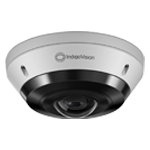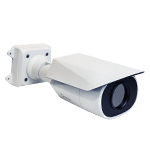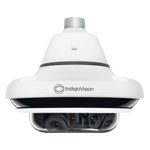Experience exceptional scene coverage and high image detail
Cover all the angles with four individually-adjustable camera sensors
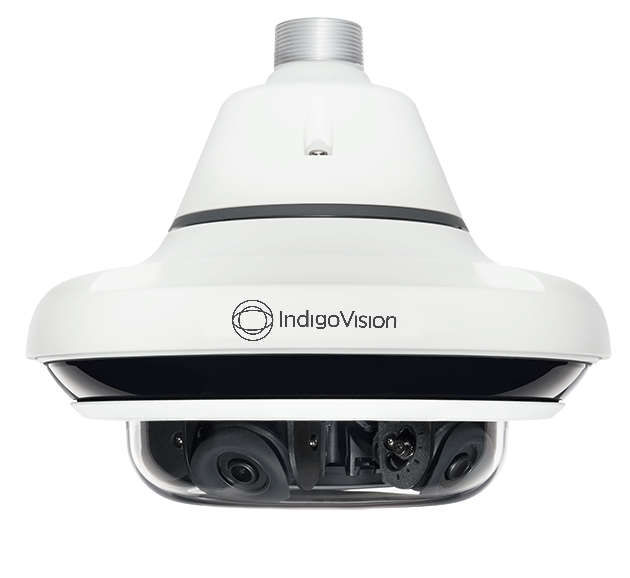
Need help choosing the right camera? Our experts are here to help.
Detect moving and stationary objects in all lighting conditions
Crystal clarity in low visibility and even complete darkness
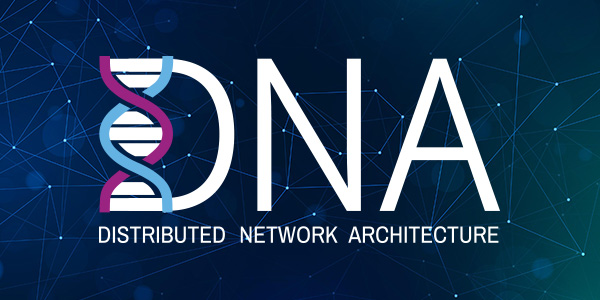
Never miss an incident with IndigoVision’s Distributed Network Architecture (DNA)
All our cameras utilize our unique DNA that removes the requirement for a central server, ensuring you never lose access to live video and benefit from minimal latency.
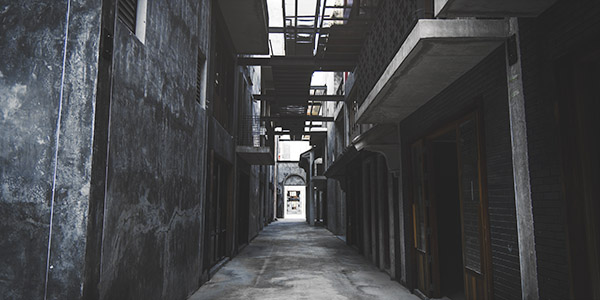
Maintain proper image brightness, exposure and contrast for high image clarity
True Wide Dynamic Range lets you capture details in scenes under varying light conditions, adapting to both bright and dark areas.
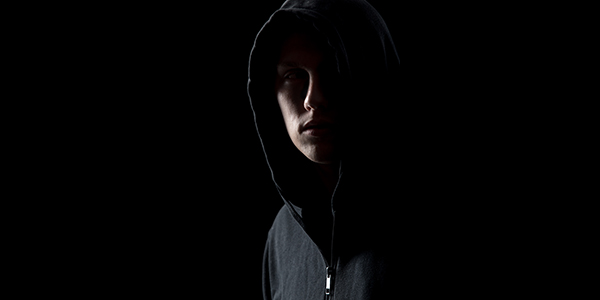
Quickly identify people and objects of interest even in dark areas
Low light technology enables the camera line to capture exceptional detail even in low-light settings, optimizing exposure, improving highlights and correcting dark areas in backlit scenes. It also ensures that silhouettes become clearly identifiable objects.
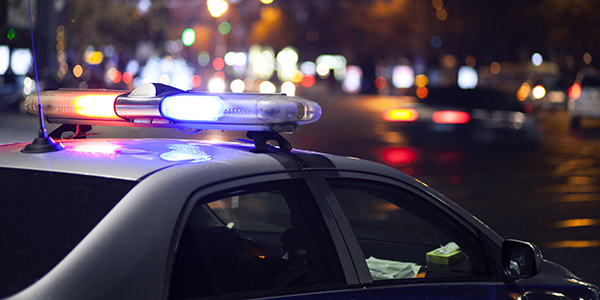
Provide clear and robust evidential video even in pitch dark conditions
Content adaptive IR up to 30m (98ft) allows the cameras to adjust IR beam width and illumination settings based on scene conditions to help maximize image quality. This prevents objects closer to the camera and light sources from becoming oversaturated.
All Features
Product Image Gallery
Frequently Asked Questions
What previous camera line do the new Multisensor cameras replace?
The new Multisensor cameras replace the BX 720 Panorama. The cameras offer a much higher resolution (up to 20MP, compared to 8MP before). Additionally, they are made in North America and are NDAA compliant.
What resolutions are available for the Multisensor camera?
The SP Multisensor camera comes with 4 individually positionable and configurable camera sensors offering 5MP resolution each, for an effective resolution of 20MP.
What compression methods are available?
To reduce costs by maximizing bandwidth and storage space, the multisensor camera utilizes H.264 SmartCodec, H.265 SmartCodec, and Motion JPEG.
Are the cameras ONVIF Compliant, and what does it mean?
ONVIF is an open standard that enables you to integrate with previous third-party investments that adhere to this open platform standard. This means that our cameras can be used seamlessly with other ONVIF systems, so you don’t need to change your existing infrastructure.
The range is compliant with ONVIF Profile S (for basic video streaming) and Profile T (for advanced video streaming such as H.264 / H.265 video compression, Metadata streaming and Motion alarm and tampering events).
Are the cameras NDAA compliant, and why is it important?
Our cameras are built in North America, and comply with US Federal Government IT procurements guidelines, the National Defense Authorization Act. This ensures cameras can be used in US federal government scenarios.
What security authentication does the camera offer?
Our solutions come with a variety of security features, including password protection, HTTPS encryption, digest authentication, WS authentication, user access log, and 802.1x port-based authentication.
In addition to these, we also provide CyberVigilant, both built into our cameras and as a standalone device, which provides end customers with an additional layer of protection where the system will alert the operators when someone that isn’t authorized attempts to access a camera.
What are relay I/O connections and how do they improve response time?
Input actions (such as alarms) will send a signal to the camera, which in turn can trigger (output) an external relay to perform an action (e.g., turn lights on). This means that specific actions, which will deter intruders, will happen automatically and instantly, ensuring response time is optimized.
How to choose the right form factor?
This depends on the application and environment the camera is going to be used in. Bullet and box cameras can act as deterrent as they remind people that they’re being observed, hence reducing the chance of incident. Dome cameras however are a more discreet option due to their half spherical-shape. For specific environments, such as oil and gas, box cameras can go inside housing that will protect them.
How does the IR illuminator work?
The in-built IR illuminator in the SP range allows operators to identify and track suspects in the dark. Infrared light isn’t visible to the human eye but CCTV cameras switch to mono as light levels fall and can film the IR light spectrum. IR bounces off hard surfaces, which reflect the signal to the camera, making it look like a torch is shining through the dark.
How to pick the correct camera for your application?
Knowing which CCTV Camera to use for which application can be tricky. We would recommend using a mixture of fixed lens cameras from our UX, BX or GX range, to cover all points of interest, ensuring there is no blind spot; paired with PTZ cameras which will enable you to focus and zoom on a particular area. For more demanding or specific applications, check our specialized range.
Additionally, our team are on hand to help you find the right camera.
What are the protection ratings for this camera?
The SP Multisensor camera come with an IP66 weather rating for indoor use (making it water resistant against powerful jets). The camera also comes with an IK08 impact rating for vandal resistance (protecting it against 5 joules of impact, the equivalent to the impact of a 1.7kg mass dropped from 300mm above the impacted surface), so you can trust the robustness and reliability of your system.
Is a server required?
All IndigoVision cameras benefit from our Distributed Network Architecture (DNA), which means that they deliver video feeds directly to your end point, removing the need for a server and removing any single point of failure.
DNA ensures you benefit from low latency, minimizing camera lag, and always have access to live video at all times, even if your NVR goes down.
Do I need to change my analog cameras to IP cameras?
Our encoders enable you to get all the benefits of an IP system while keeping your existing analog investment. Enjoy the flexibility to gradually migrate to IP camera by camera, or to complement a completely new IP system; prolonging the lifetime of your existing analog investment.
With outstanding compression, IndigoVision’s Encoders can encode both SD and HD analog cameras so you get reduced bandwidth, reduced storage costs, improved video quality and up to 25 fps. All coupled with intelligent analytics and remote client access, enabling your existing analog investment to make a step up.
What storage options does the camera offer?
Onboard storage is made possible with a micro SD/microSDHC/microSDXC slot, so you can get video recordings even during network interruptions.
Tools
Product Datasheets
SP Range Multisensor Camera Datasheet
Quick Start Guides
SP Range Multisensor Surface Camera Quick Start Guide
SP Range Multisensor Ferrite Clamp Camera Quick Start Guide
SP Range Multisensor In Ceiling Camera Quick Start Guide
SP Range Multisensor Wall Pendant Mount Camera Quick Start Guide
Install Guides
SP Range Multisensor Camera Install Guide
SP Range Camera Web Interface User Guide
Product Drawings
SP Range Multisensor Camera Dimensional Drawings
Mount Matrix
SP Range Multisensor Camera Mount & Accessory Matrix
| wdt_ID | PART NUMBER | DESCRIPTION |
|---|---|---|
| 1 | 754980 | SP Multisensor, Camera Module – Must be ordered with either of the below |
| 15 | 150251 | Outdoor surface mount adapter, must order either a MS-DO-COVR-CLR or MS-DO-COVR-SMK. |
| 16 | 150252 | Outdoor pendant mount adapter, must order one of MS-IRPTZ-WALL-MNT or MS-IRPTZ-NPTA-MNT and one of MS-DO-COVR-CLR or MS-DO-COVR-SMK. |
| 17 | 150253 | In-ceiling adapter, must order either a MS-DC-COVR-CLR or MS-DC-COVR-SMK. |
Please refer to the mount and accessory matrix for additional part numbers.

